EFL Week of Action: How clubs are reaching fans from all communities
- Published
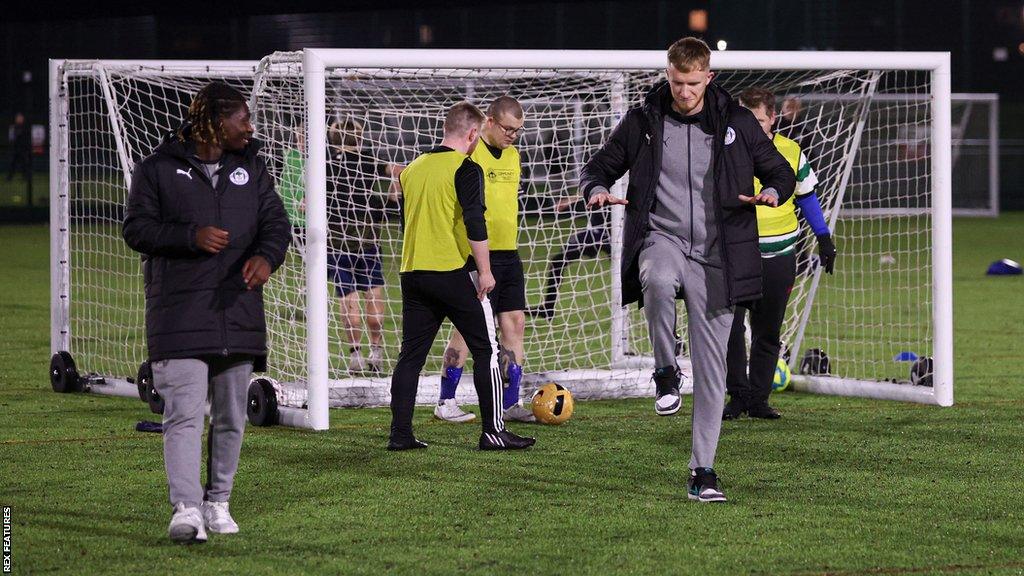
Wigan Athletic duo Baba Adeeko (left) and Liam Morrison (right) took part in the Every Player Counts event to help those with disabilities
Football clubs are absolutely central to life within their communities. But their influence goes far beyond what happens in the 90 minutes of a game on Saturday.
Clubs have a power and reach that few can match and all are actively involved in community schemes to help those in need.
This week is the English Football League's Week of Action, when a light is shone on the good work that is being done up and down the country.
BBC Sport takes a look at some of the schemes in practise across the EFL.
'More than football'
Queens Park Rangers' Tiger Cubs were only the second Down's syndrome team to form in the UK, and are now celebrating their 15th anniversary.
QPR's inclusive project officer, and Tiger Cubs coach, Connor Bagnall, spoke to BBC Radio London about the fine work they are doing.
"We've been very lucky throughout our time. Some participants started on day one with us - to see not only their football skills grow, but their confidence and social skills grow, has been truly amazing.
"During the 15 years we've not only been a football programme, we've also run employability sessions to help them write CVs and do interviews, and some have gone on to gain employment.
"We've also run cooking sessions with them, where we teach them how to prepare fresh and healthy meals so they can cook once they get home. "So the programme is a lot more than football, which has been brilliant to see over the last 15 years to see our young people grow.
"We currently deliver three football sessions a week in three different London boroughs, which is the most Down's syndrome-specific footballing activity in the UK.
"We have 34 active participants attending one or more sessions a week, with another 14 that don't attend as regularly."
Rosenior and the seniors
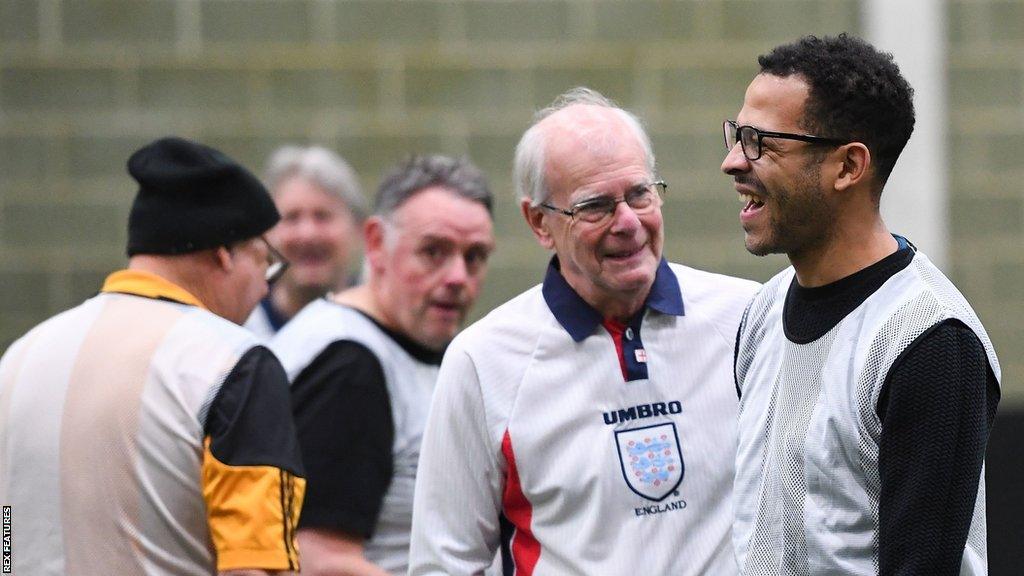
Hull City manager Liam Rosenior (right) plays in a game of walking football for over-55s, run by the Tigers Trust
Hull City manager Liam Rosenior was a surprise guest participant in one of the club's walking football sessions for over-55s, run by the Tigers Trust.
Still 16 years shy of being officially eligible, Rosenior was happy to be able to give back to a club and to an area that is close to his heart.
"Walking football is a lot easier than when I was playing, that's for sure!" he said.
"It's brilliant because it's a sport that allows everybody to play football, and that's really important because the game is for everyone.
"For me to be able to come down and play with the guys was good fun and really enjoyable. At all of these events, we make a lot of appearances through the season, with the players and myself, because we want to support the local community.
"To see the guys playing walking football and to see their togetherness - you can sense it when you're out there with them - and it sums up everything this football club is about."
Moore attends breakfast club
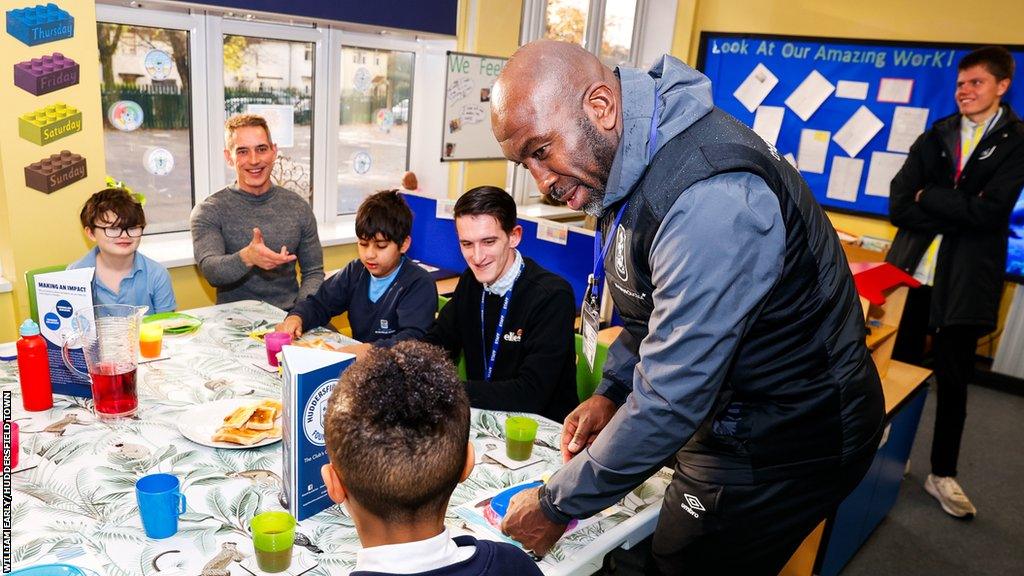
Huddersfield Town manager Darren Moore visits a breakfast club at a local primary school
Huddersfield Town manager Darren Moore was out early one morning to visit St Thomas CE (VE) Primary School and one of the breakfast clubs that the Terriers support.
Since the scheme began in 2012, the club has served over 2.5 million breakfasts to children in the Huddersfield area.
"As the football manager, I feel extremely proud to lend my support," Moore told BBC Radio Leeds.
"Here at Huddersfield we have been doing this for over a decade. We have been engaging with many, many pupils and that connection is so, so important.
"You see football on the pitch but there are so many things that go on outside, and it's great that the club can reach out in the community and support wonderful programmes. Long may the good work continue."
'Football draws community together'
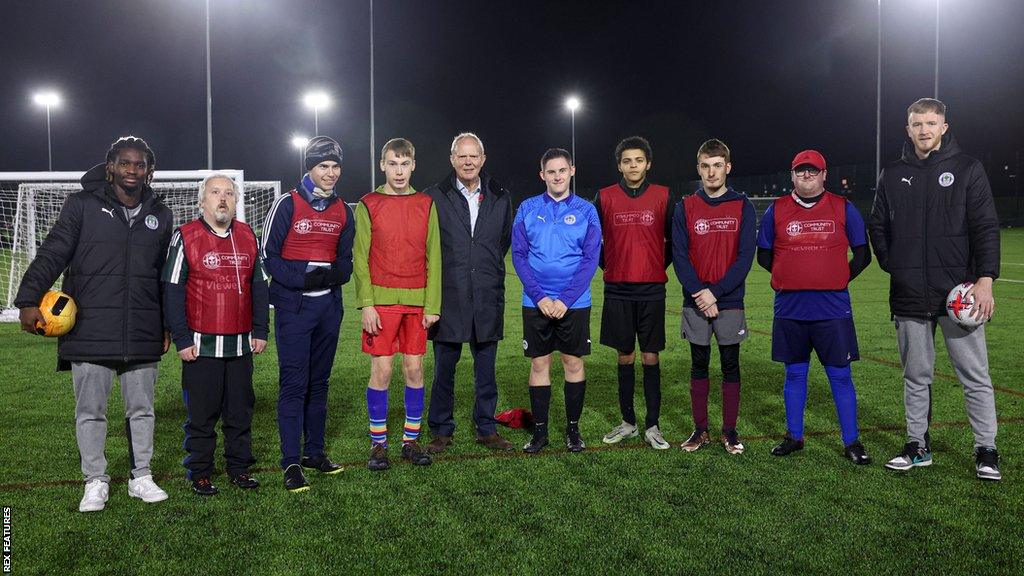
Wigan players Baba Adeeko (far left) and Liam Morrison (far right) at the Every Player Counts event with EFL chief executive Trevor Birch (centre)
The EFL's chief executive Trevor Birch was present at Wigan Athletic's Every Player Counts session, aimed at disabled players, along with players Baba Adeeko and Liam Morrison.
Birch recognises just what a vital role every one of the 72 EFL clubs can perform in their local community, and in helping out some of their most in-need groups.
"It's fantastic to see so many taking part in the session," he said. "It's something that again demonstrates the power of football bringing a community together.
"It's great to see the participants engaged with the players and I think it means something to the players too, for them to be giving something back to their local community and their club.
"Each community is slightly different and each local area has a slightly different need, and that's what clubs do so well, they cater to what is needed in their area.
"That's the beauty of football and the role it plays within the communities - it draws together such a wide variety of projects and programmes, that cater for different people."
Week of Action in pictures
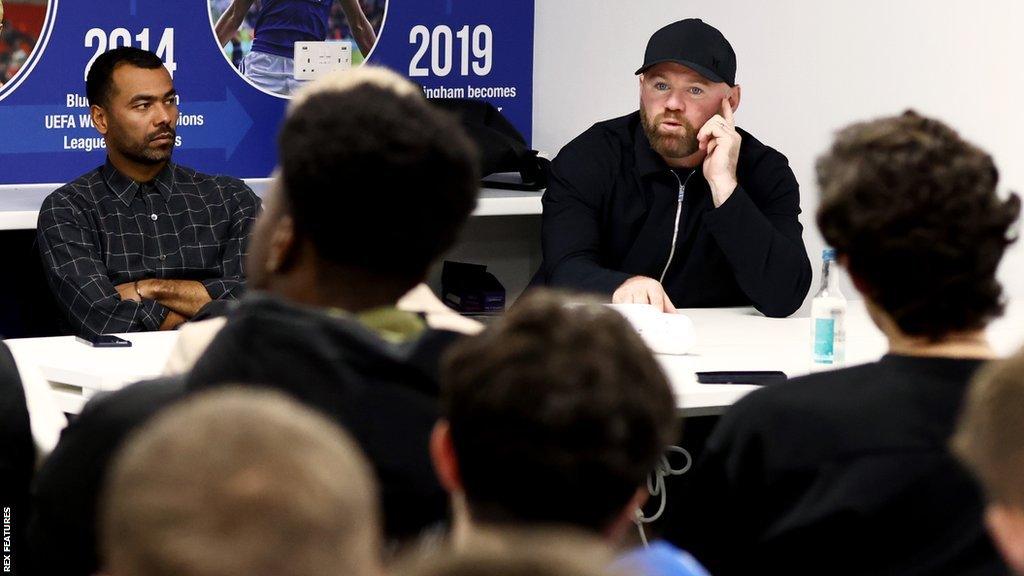
Birmingham City manager Wayne Rooney (right) and first-team coach Ashley Cole (left) sat down with members of the club's Community Coaching Degree courses
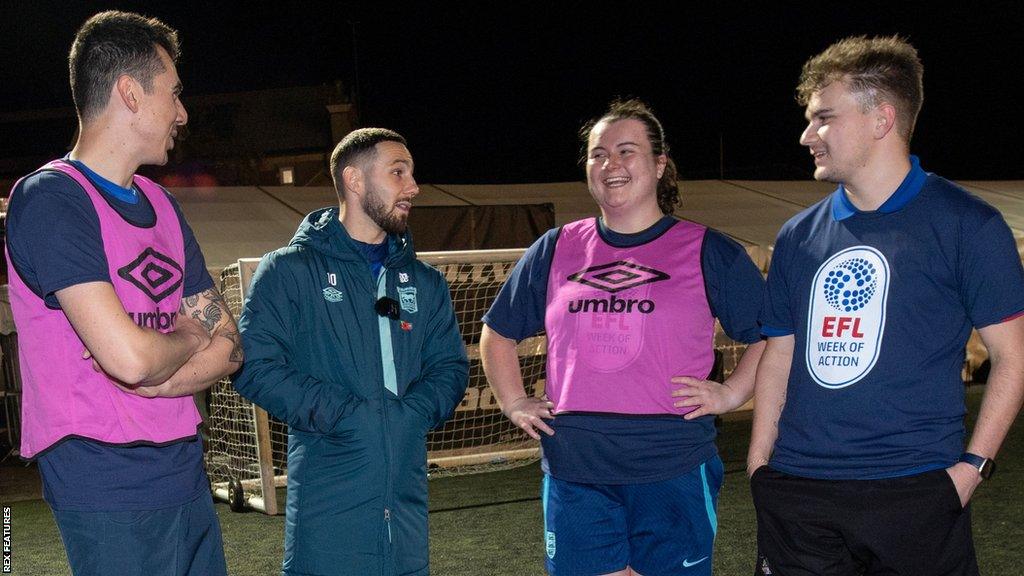
Ipswich Town midfielder Conor Chaplin attends one of the club's LGBTQ+ sessions, set up in June in conjunction with Rainbow Tractors
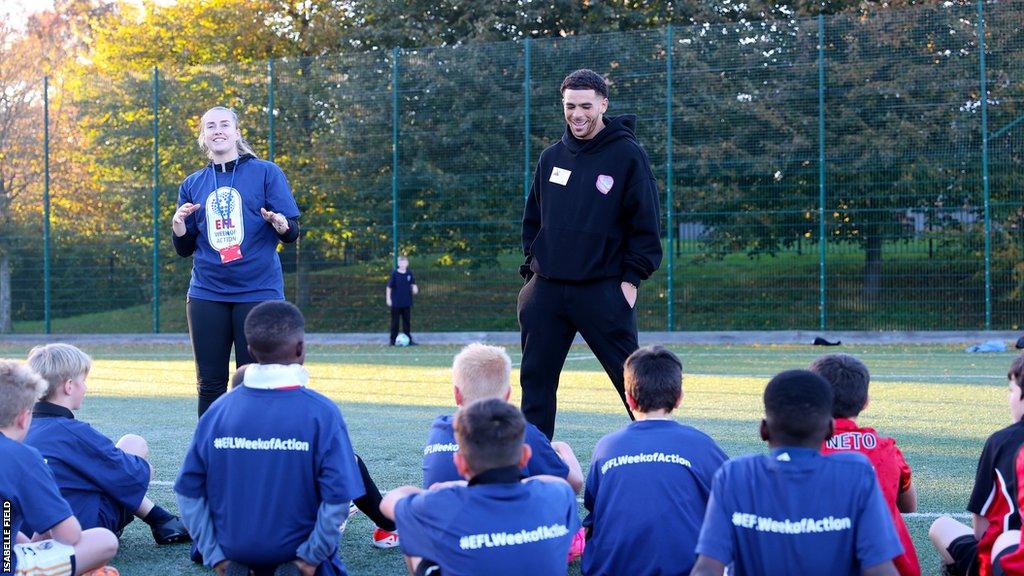
Southampton forward Che Adams attended a refugee football session, as the club helps refugees living in the city through the Active Through Football programme
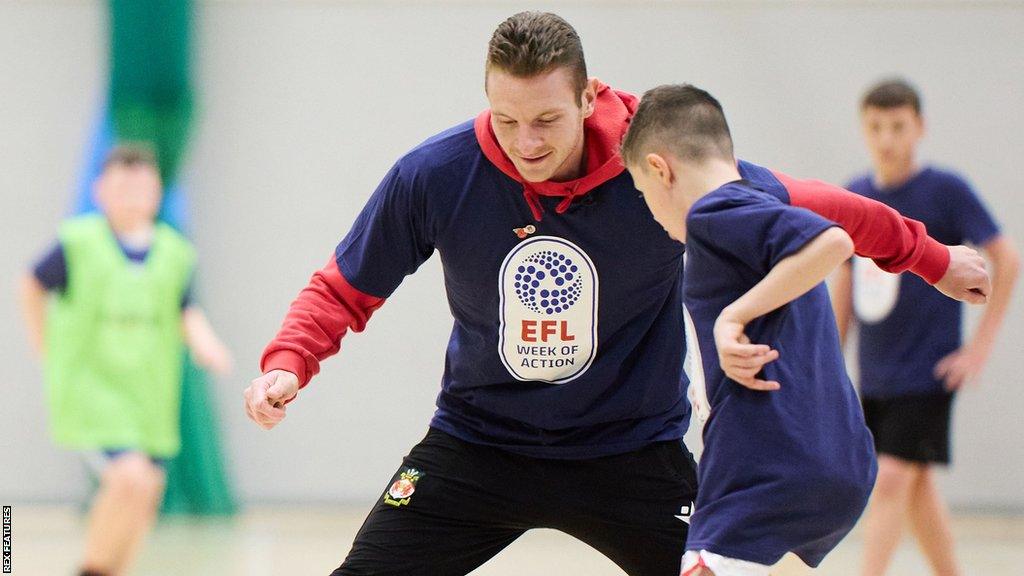
Wrexham striker Paul Mullin met participants from the club's holiday camp that is specifically designed for primary and secondary school-aged autistic children.